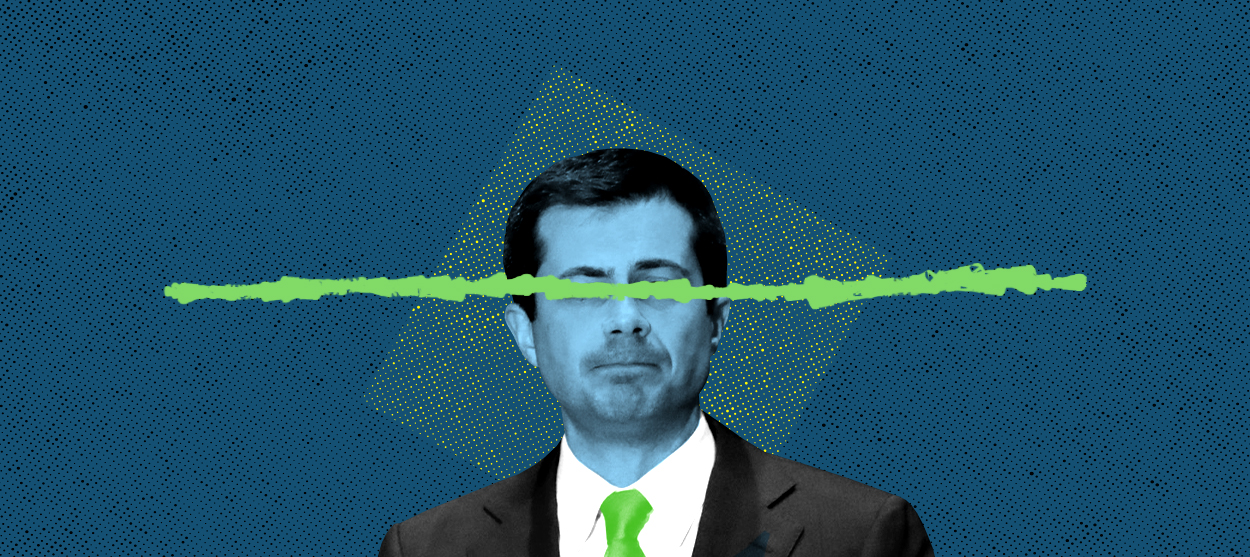The undoing of Mayor Pete
Pete Buttigieg's presidential campaign surrendered to its inevitable demise after a fourth-place finish in South Carolina


A free daily email with the biggest news stories of the day – and the best features from TheWeek.com
You are now subscribed
Your newsletter sign-up was successful
By the time Pete Buttigieg dropped out of the Democratic presidential race on Sunday evening after finishing fourth place in the South Carolina primary, a nation of observers had finally learned to pronounce his surname after months of referring to him simply as “Mayor Pete.” Given his lack of national political experience, Buttigieg's fundraising prowess in 2019 was reasonably impressive. His disappointing showing in South Carolina, which was more or less in line with what he had expected, followed what was technically a close victory in the Iowa caucuses and a second-place finish in New Hampshire. But these facts aside, it is difficult to say what exactly the former mayor of South Bend, Indiana, can be said to have accomplished during his presidential campaign.
How else did he think this was going to turn out? Who did he imagine made up the constituency for an actual Buttigieg presidency? Wealthy suburbanites who preferred the guardians of their investment portfolios to be under the age of 75? College students who like the idea of being woke but think that the underlying realities of our economic system should not change? Buttigieg's platform was virtually identical with that of every other moderate candidate in this race. His record in office was undistinguished even by the standards of other mayors of medium-sized post-industrial cities in the Upper Midwest. Unlike Barack Obama in 2008, he could not argue that his youth was actually an asset, nor did he speak to the aspirations of millions with his uninspiring rhetoric. His utterances on the campaign trail had all the emotional uplift of an indifferently delivered PowerPoint presentation; his answers in debates sounded like (and may once have been) responses to professional development day icebreaker questions.
Mayor Pete's undoing was his utterly predictable failure to connect with white working-class, Hispanic, and, especially, black voters. There are a number of reasons for this — his thin résumé, his vague platform, his record with South Bend's African-American population — but the most obvious one has been the subject of comparatively little public discussion: namely, the fact that many millions of poor and minority voters still disapprove of same-sex marriage. When footage emerged last month of an Iowa caucus participant asking to retract her vote upon learning that Buttigieg is married to a person of the same sex, the woman was discussed as if she were a curiosity as opposed to a fairly typical representative of the Democratic electorate outside of the party establishment and activist circles.
The Week
Escape your echo chamber. Get the facts behind the news, plus analysis from multiple perspectives.

Sign up for The Week's Free Newsletters
From our morning news briefing to a weekly Good News Newsletter, get the best of The Week delivered directly to your inbox.
From our morning news briefing to a weekly Good News Newsletter, get the best of The Week delivered directly to your inbox.
These and other tensions within the broader Democratic coalition are rarely talked about openly. They are likely to remain that way. But they are also likely to continue to define the parameters of these nominating contests for the foreseeable future; unless there is a great realignment in American politics that disconnects working-class voters of all races from elite social liberalism we should expect this uncomfortable dynamic to play out again and again for Democrats.
Given that Buttigieg's campaign had not expected to place substantially better than fourth in South Carolina, it is hard to say why he chose to exit the race now, without waiting to see how he would fare in the various Super Tuesday contests. The most likely explanation is that by withdrawing now he increases his chances of being named the running mate of the eventual nominee (assuming that this person is not Bernie Sanders). Even so, this seems to me unlikely, not least because I do not expect the Democratic Party to field an exclusively white male ticket ever again. The best Buttigieg can probably hope for instead is a cabinet position. Otherwise, with statewide office in his home state beyond his reach, his political career appears to be over.
A free daily email with the biggest news stories of the day – and the best features from TheWeek.com
Matthew Walther is a national correspondent at The Week. His work has also appeared in First Things, The Spectator of London, The Catholic Herald, National Review, and other publications. He is currently writing a biography of the Rev. Montague Summers. He is also a Robert Novak Journalism Fellow.
